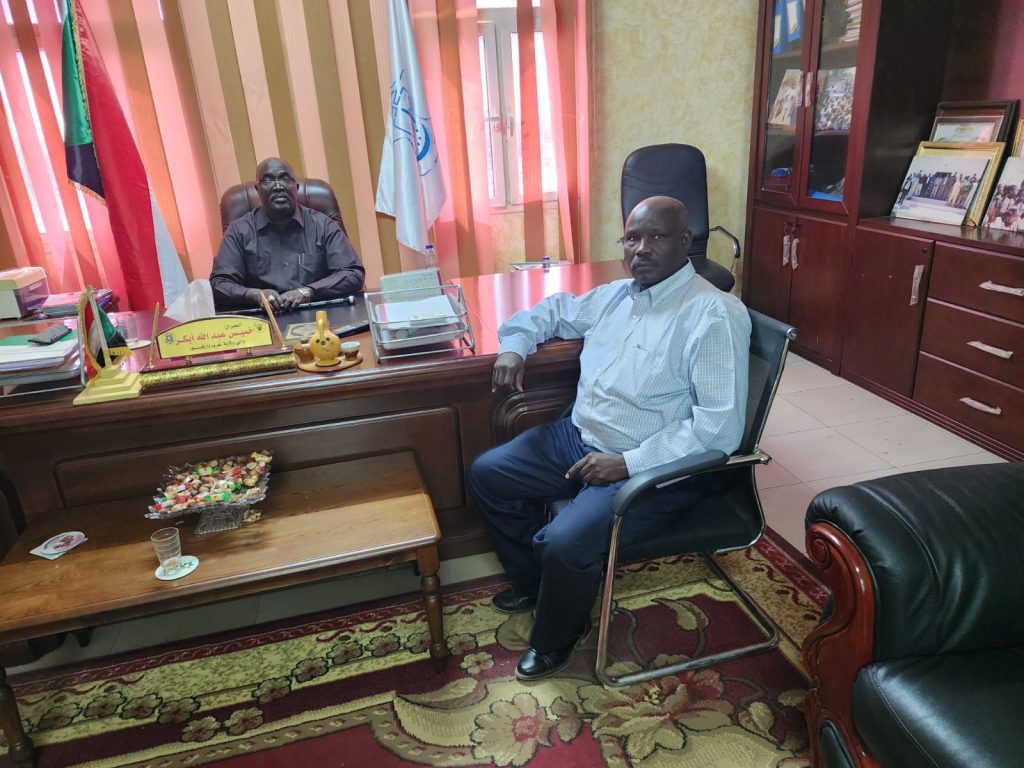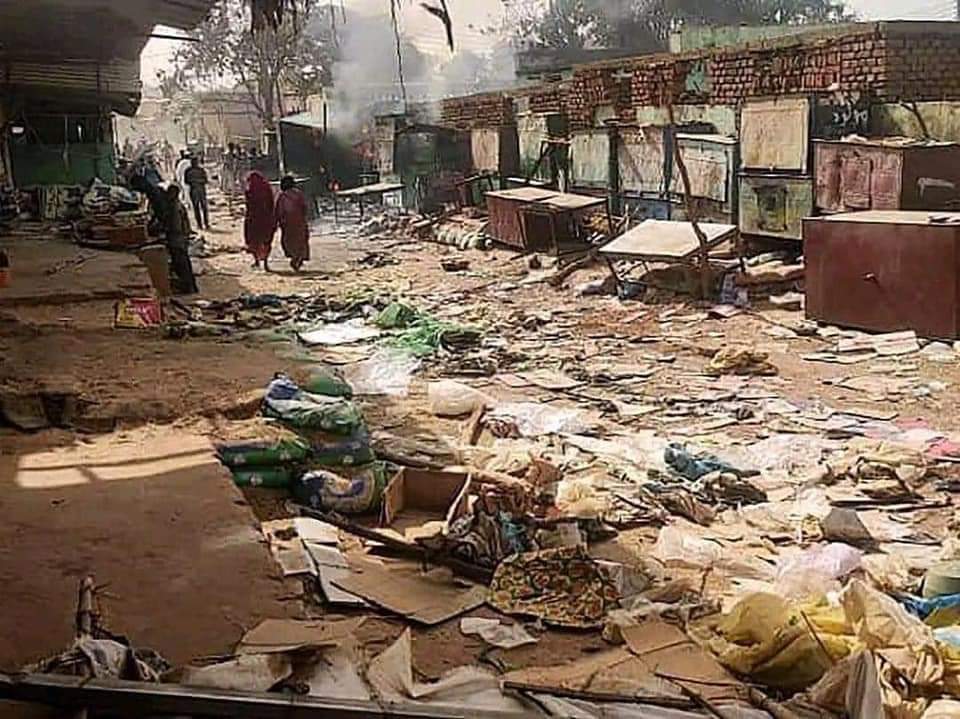
June 6, 2023
Daowd Ibrahim Salih is a founding member and Board President of the Damanga Coalition for Freedom and Democracy (www.damanga.org). A former assistant field officer for the German Red Cross, Swiss Red Cross and Sudanese Red Crescent, Mr. Salih came to the United States as a refugee in exile from Darfur. He was forced to leave Sudan due to his advocacy work on behalf of the Massaleit and other Darfurian ethnic groups. As co-author of an influential open letter to the international community entitled “The Hidden Slaughter and Ethnic Cleansing in Western Sudan,” Mr. Salih was among the first activists to focus global attention on the crisis in Darfur. This report and other human rights publications have been referenced by the UN General Assembly and Secretary-General, Human Rights Watch and Amnesty International. In his ongoing work with Damanga, Mr. Salih has spoken at venues across the nation in an effort to educate the public about the genocide in Darfur, and to mobilize an effective response that will bring peace and justice to the region.
AMCD: The situation is Sudan is heartbreaking for those of us who have been following the destruction and blood-letting caused by this latest coup attempt. Can you set the stage for us a little bit and tell us what is happening there now?
Salih: A power struggle has erupted between the two junta leaders, General al-Burhan, commander of the Sudan Armed Forces, and Rapid Support Force/Janjaweed commander General Mohamed Hamdan Dagolo. The junta had taken control of the government as of October 2021, in an effort to stabilize the country which had been in turmoil after the ouster of President Omar al-Bashir in 2019. Now, the two factions are fighting each other and causing widespread misery.
In mid-April, the RSF (Rapid Support Forces) orchestrated a coup against Sudan’s transitional military government. Futile attempts have been made by the United States and Saudi Arabia to mediate both parties, including five ceasefire attempts and general negotiations. However, the fighting and looting in the Darfur region, especially the state of Western Darfur and its capital city El Geneina has never ceased. These regions have been destroyed, which has increased the number of internally displaced people due to the burning of camps and houses. Hospitals, markets, and other institutions have been burned and destroyed. A recent local report by the doctors in El Geneina has stated that two-thousand people have been wounded, with a majority being women, children, and elderly. There are no hospitals or medical centers left that can provide assistance to these people due to a lack of crucial medical supplies like oxygen tanks and blood banks.
The entire city of El Geneina has been blockaded by the RSF and their allies (Janjaweed), with snipers strategically placed to prevent evacuations. There is no access to nutrition for civilians, which is an aspect of genocide. All patients who have been on dialysis or have other serious health problems have died due to a lack of medical materials. Many pregnant women have either died during labor or their newborns have not survived.
North Darfur state, specifically the town of Kotom, has been under control of the RSF, leaving no option for the wounded to seek care in the capital of El Fasher. Many highwaymen have taken automobiles, leaving no modes of transportation. In South Darfur state, the situation is also somewhat similar to North Darfur.
AMCD: What kind of assistance are you looking for?
Salih: We are asking the US government to work with the Sudanese Darfur-based organizations to send medical assistance to people in dire need in the Darfur region, particularly El Geneina where the situation is especially consequential. We also ask for aid to be sent to those who have fled to the Republic of Chad, and those who are currently fleeing. Due to the Khartoum International Airport no longer functioning, we ask for all aid to be sent through the Chadian border.

AMCD: Is there anything else the government can do?
Salih: I would also like to raise attention to the Department of Treasury’s sanctions on companies that are affiliated with the RSF and the Sudanese Army, issued on June 1st. While we appreciate the sanctions placed, we would like to see more economic sanctions on the RSF rather than the Sudanese Army. This is on the basis that the RSF is composed of soldiers (mercenaries) from West and Central African countries–Chad, Central African Republic, Niger, Mali–that are invading Sudan, while the Sudanese Army is merely defending itself against such invaders.
AMCD: So, is it your opinion that the RSF is mainly to blame for the current conflict?
Salih: The RSF has demonstrated no interest in ending the war, proven by their ignorance of the negotiated ceasefires in Jeddah. The RSF has remained occupying hospitals, looting banks, and terrorizing citizens in unimaginable ways, whether it be in Khartoum or in Darfur. There has been reputable evidence of the involvement of Sudan’s neighboring countries, the Wagner Group of Russia, and other parties that have helped the RSF.
AMCD: What would you like to see happen now?
Salih: We would ultimately like for the US government to stand with all Sudanese people, to liberate them from the RSF and Janjaweed, who have been committing genocide since 2003 and continue to do so. We are calling on the US Government to collaborate with the UN Security Council to convene and address ways to protect the people of Darfur, and generally the people of Sudan.
AMCD: Thank you for this important and informative interview. I hope the people of Sudan received the help they so desperately need.
Salih: Thank you.

